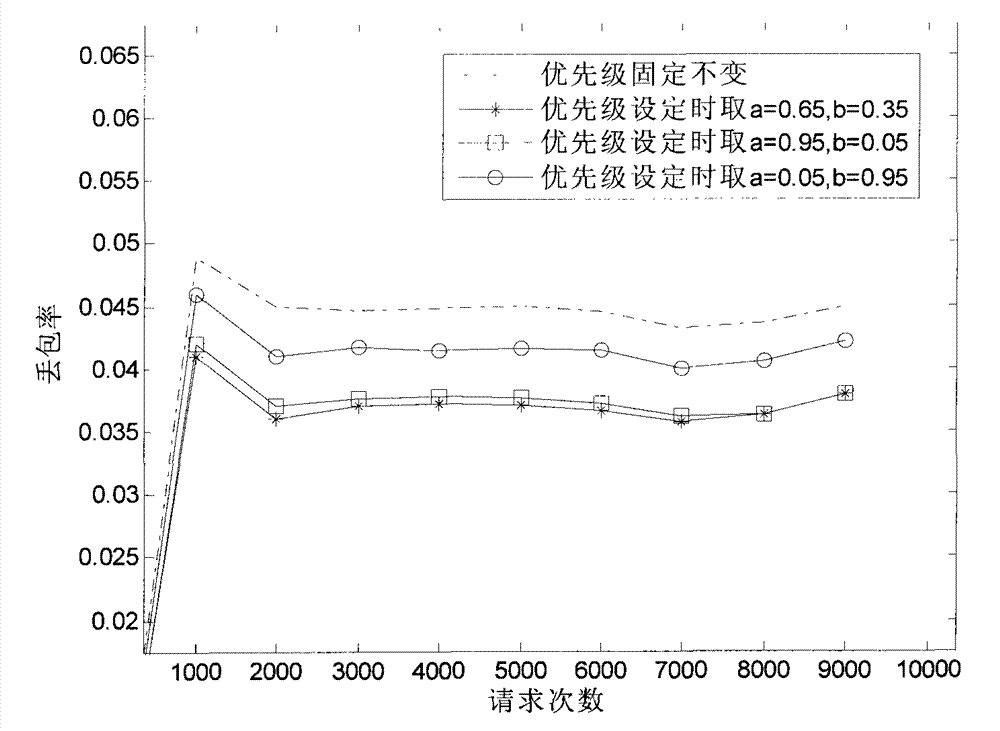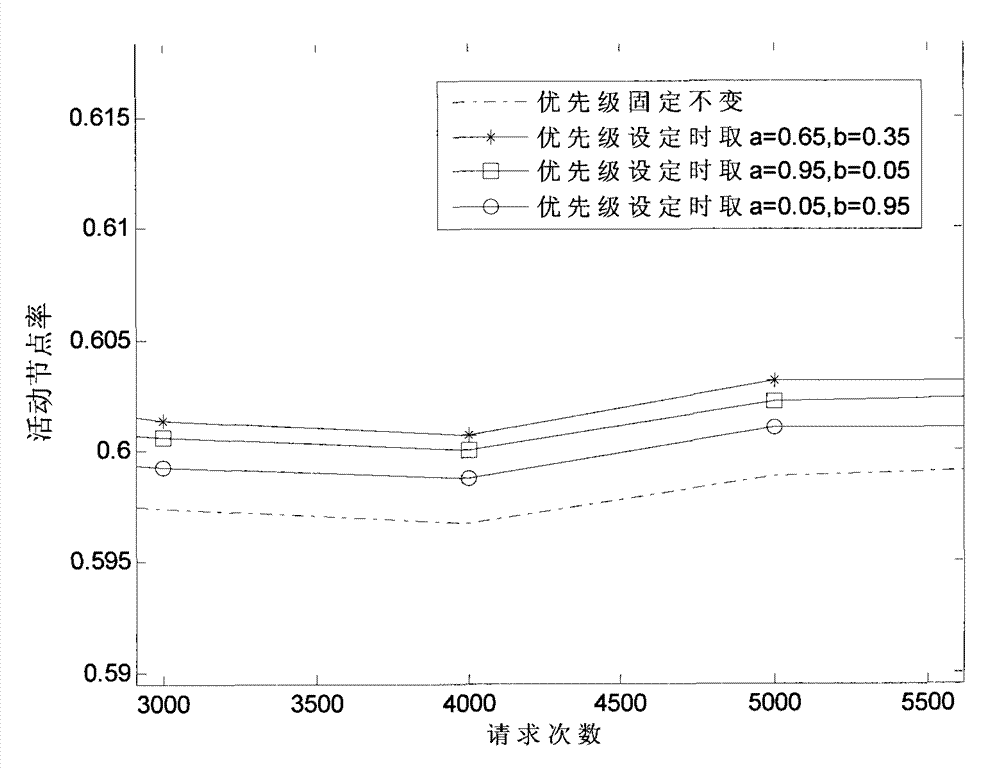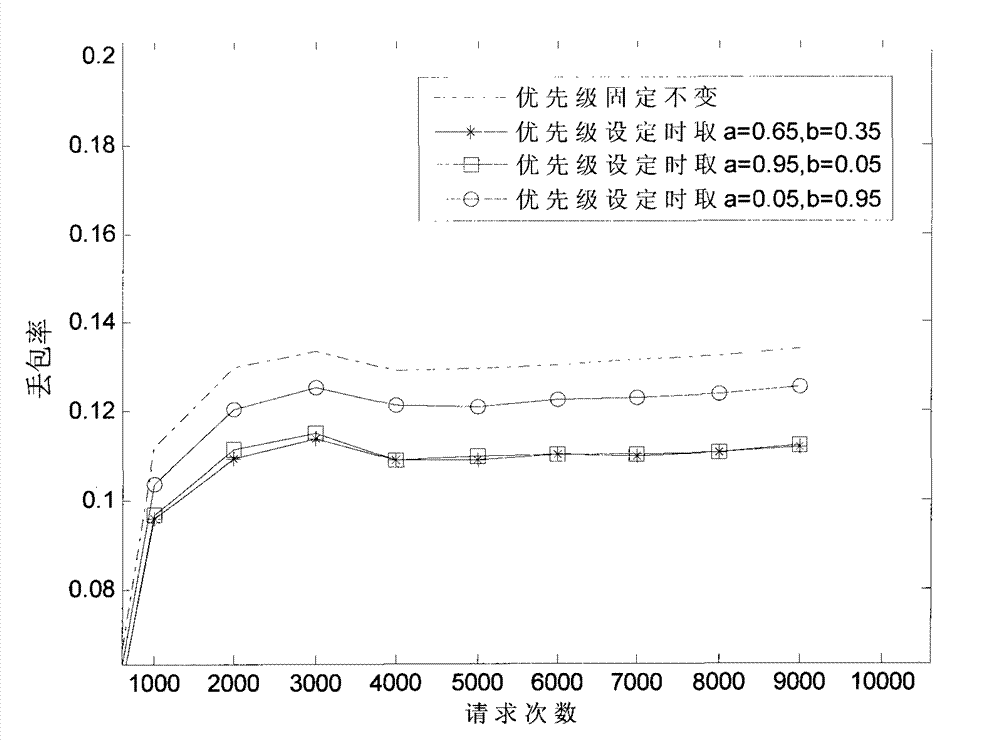System for access control of unidirectional light bus network based on priority level dynamic regulation
A network access control and dynamic adjustment technology, applied in the transmission system, electromagnetic wave transmission system, optical fiber transmission, etc., can solve the problems of not being able to make good use of optical bus resources and meet the real-time requirements of data transmission, so as to improve the real-time performance Requirements, the effect of improving the utilization rate of the optical bus
- Summary
- Abstract
- Description
- Claims
- Application Information
AI Technical Summary
Problems solved by technology
Method used
Image
Examples
Embodiment 1
[0043] Reference figure 1 with figure 2 , A unidirectional optical bus network access control system based on priority dynamic adjustment, including a unidirectional optical bus containing M nodes, M≥3, and M is a natural number, the unidirectional optical bus includes a convening node, M-2 intermediate nodes and one termination node; the data flow of each node on the optical bus is a single service type. The one-way optical bus network access control system based on dynamic adjustment of priority also includes:
[0044] The node urgency parameter (J) calculation module is used to calculate whether the data at the node is eager to send. The data flow arriving at each node has a service maximum waiting delay T i , Where i represents different nodes on the optical bus, t i Indicates the delay that has been waited since the arrival of the first packet of the service; node urgency parameter J = t i T i Indicates the ratio of the waiting time to the total delay...
Embodiment 2
[0084] In this embodiment, the number of optical bus nodes M=6, and the other parameters are the same as in embodiment 1. The packet loss rate of the optical bus under different priority setting methods is evaluated, and the attachment is obtained. image 3 As shown in the results, the activity of the optical bus under different priority setting methods is evaluated, and the attached Figure 4 As shown in the results, it can be seen that the packet loss rate is the largest when the priority is fixed, and the active node rate is the smallest. When the priority setting emphasizes the delay requirement (ie a=0.95, b=0.05), the packet loss rate is the smallest, but the active node rate is small. When the priority setting focuses on the active node rate (ie a=0.05, b=0.95), the packet loss rate is larger, and more requests are lost due to time delay. When the priority setting considers both the delay and the active node rate (ie a=0.65, b=0.35), the packet loss rate is small, which i...
PUM
 Login to View More
Login to View More Abstract
Description
Claims
Application Information
 Login to View More
Login to View More - R&D
- Intellectual Property
- Life Sciences
- Materials
- Tech Scout
- Unparalleled Data Quality
- Higher Quality Content
- 60% Fewer Hallucinations
Browse by: Latest US Patents, China's latest patents, Technical Efficacy Thesaurus, Application Domain, Technology Topic, Popular Technical Reports.
© 2025 PatSnap. All rights reserved.Legal|Privacy policy|Modern Slavery Act Transparency Statement|Sitemap|About US| Contact US: help@patsnap.com



